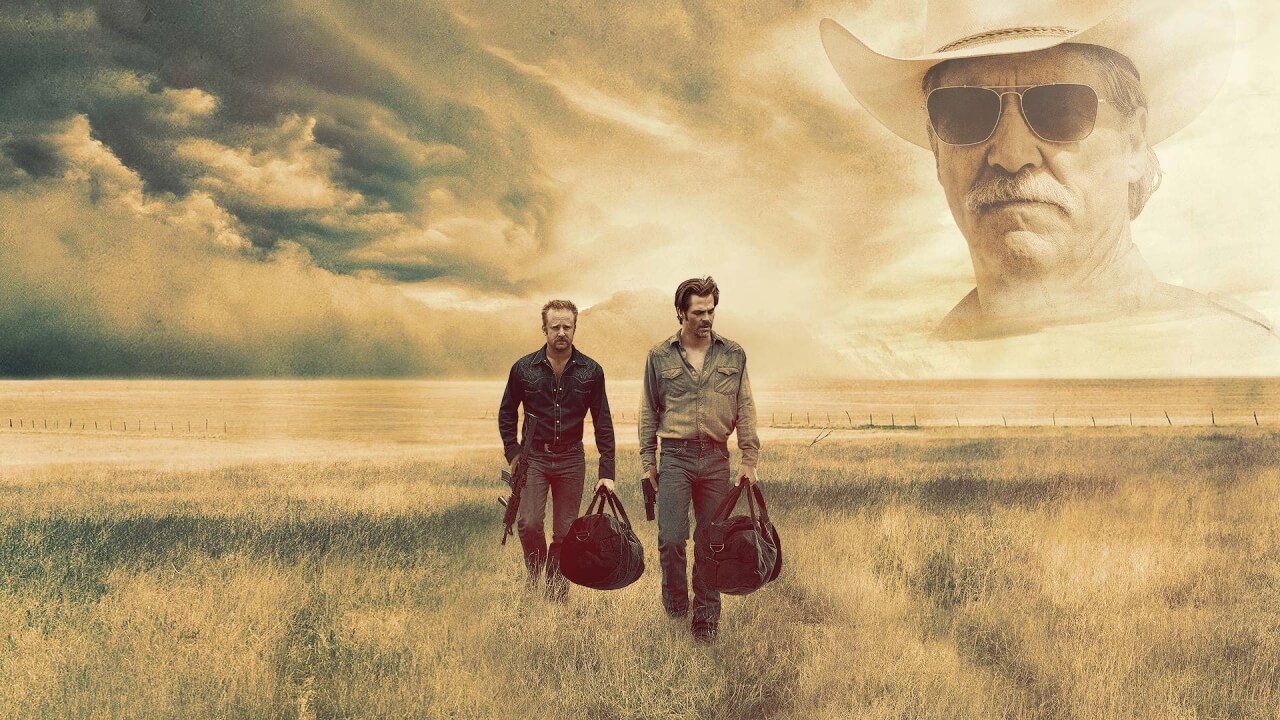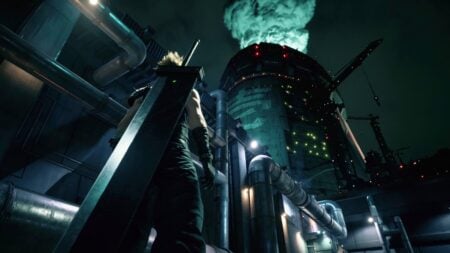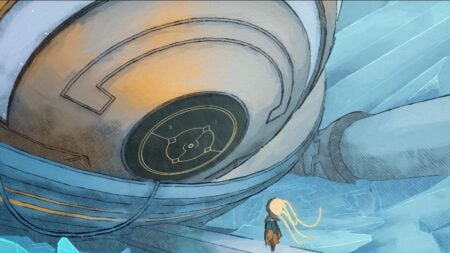Title: Hell or High Water
Release Date: August 12th, 2016
Director: David Mackenzie
Release Format: Theatrical
Set in the desolate rural areas of West Texas, Hell or High Water is a uniformly magnificent neo-western. For a film that focuses so emphatically on the economic conditions of today, the cops v. robbers story are as old a story as any. This makes the film both timeless and contemporary; a modern dissection of the cowboy myth from yesteryear. The script written by Taylor Sheridan deconstructs formulaic legend by making the opportunistic banks a corrupting force of nature. After all, the environment they perpetuated through greed and opportunity motivates the robbers to steal from those very banks. No one is in the black or white. Instead, everything lies in a shade of murky grey.
Divorced father Toby (Chris Pine) and his ex-con Tanner (Ben Foster) are the aforementioned robbers of this story. They’re two brothers out to rob branches of the bank threatening to foreclose their mother’s ranch. Toby’s plan is to steal enough money to make the mortgage payments and place the home in a trust fund for his two boys. To do so without drawing excessive attention, they take small untraceable bills kept by the tellers. Laconically on their heels is a Texas Ranger a few weeks to retirement (Jeff Bridges) and his partner (Gil Birmingham).
Like so many of the great anti-heroes, Toby and Tanner are motivated by identifiable reasons albeit through condonable actions. Through simple conversations and deliberate pacing, it becomes evident very quickly how different these two brothers are. Toby is much more level-headed than his older brother, who refers to himself as “a lord of the plains.” Tanner’s self-image harkens back to characters like Liberty Valence and Little Bill Daggett. These are men who view themselves as superior to their surroundings and even the law of the land. Nevertheless, there’s a method to his madness which ultimately humanizes him. Foster is great as usual but it’s the subdued performance from Chris Pine that stands out.
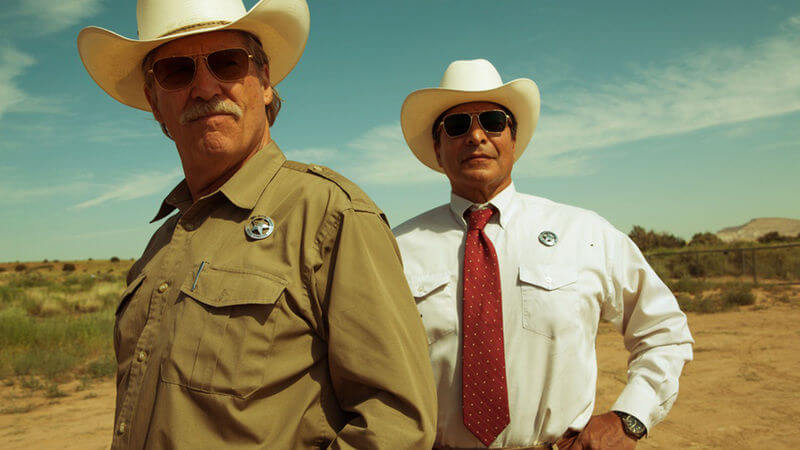
As the grizzled Texas Ranger, Jeff Bridges reaffirms his position as one of the finest actors we have. Like Toby and Tanner, Marcus provides a world-weary perspective to the picture. His relationship with his partner is as peculiar a “buddy cop” connection as any. Part of this stems from their differing mentalities of operating on the case. Marcus is keener on simply waiting it out rather than hunting the brothers down. Given that his partner hails from a proud combination of Comanche and Mexican heritage, Marcus is quick to throw racial quips his way. Of course, his partner Alberto is always able to retort with snarky comebacks. Amidst the humorous back and forth barb fests, it is made very clear there is mutual respect between both of them.
Beyond the performances lies a very vibrant backdrop of artistic merit and A-grade filmmaking. As with any great Western, the setting is as much of a character as any. You get the sense that this area has been unsavory for many decades. Cinematographer Giles Nuttgens helps to establish a feeling of withered isolation with each frame. From the barren scenery to the run down homes, everything feels damaged and decayed. With a script that’s relatively unshowy, the visual aesthetic goes a long way in providing layered storytelling. At the same time, so many scenes convey all that is necessary through minimal exposition; namely the closing few minutes.
What the script lacks in showcase monologues or exaggerated shootouts it makes up for in exploring potent themes. One of these themes is the idea of violence and poverty spanning across multiple generations. Drawing from the experience of both he and his mother, Toby tells his oldest son to make the most of the ranch. In essence, he wants him to break the cyclical nature of poverty in his family by saying “I don’t want you to be like me.” Toby is dead set on making sure his sons have something to call theirs without owing to others. The means, whether through violence or not, can be justified for the sake of Toby’s children.
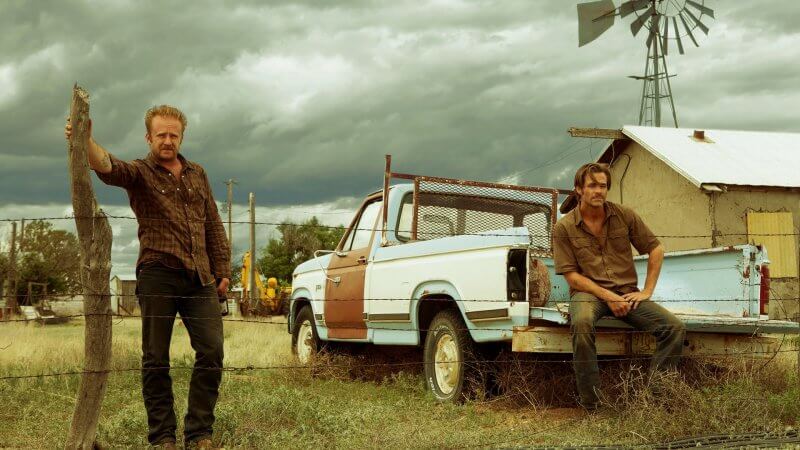
While it is a neo-western, Hell or High Water is also an emphatic political statement on the economic corruption of our nation. From the opening scene, it’s made clear that subtlety is not on the mind of the filmmakers. The banks are clearly the villains here, as demonstrated by a spray painted message stating ““3 tours in Iraq but no bailout for people like us.” In this world, banks have become the new robbers and the old robbers have become Robin Hood like figures. Along with deconstructing western myths, it explains how perceptions have simultaneously changed with the times. There’s still glimmers of hope for some but the majority of the characters are disillusioned with their environment. Like Unforgiven, Hell or High Water signals the death of the classic west as we know it. In its place is the world where peace and prosperity can only be achieved through self-justification and moral quandaries.
[review]

